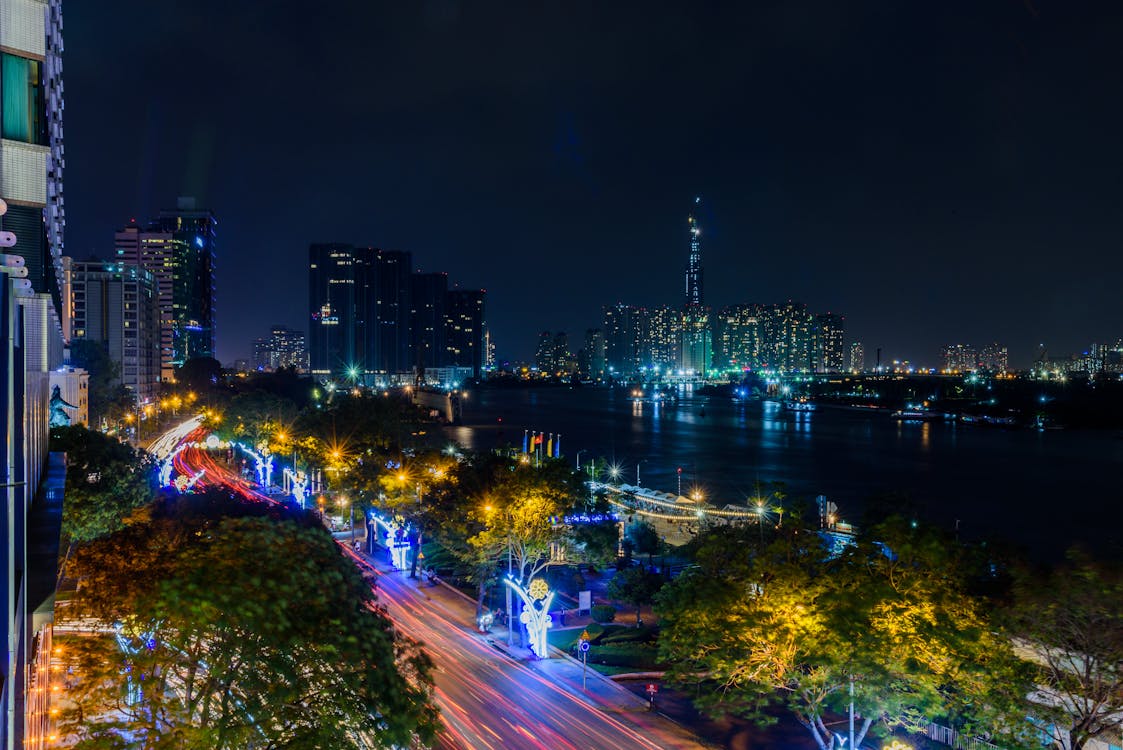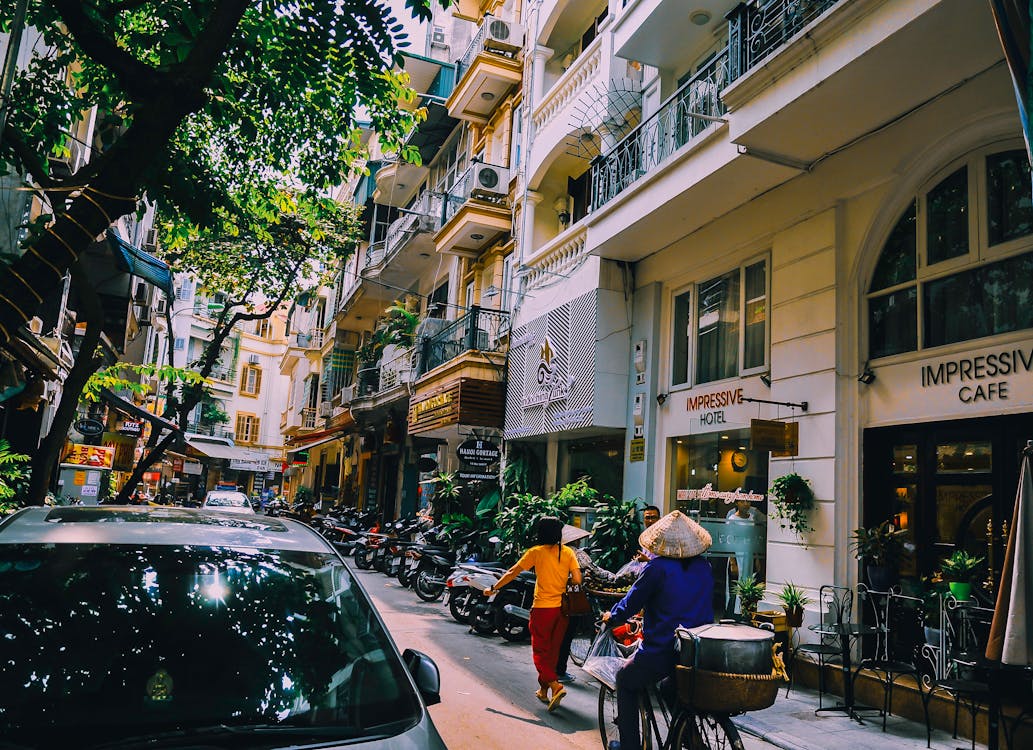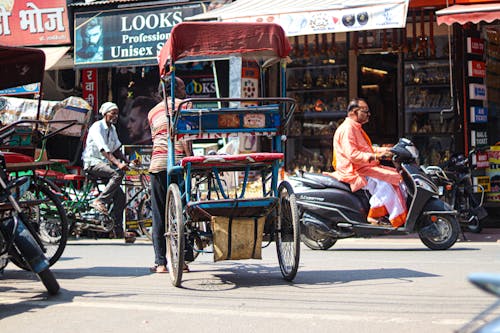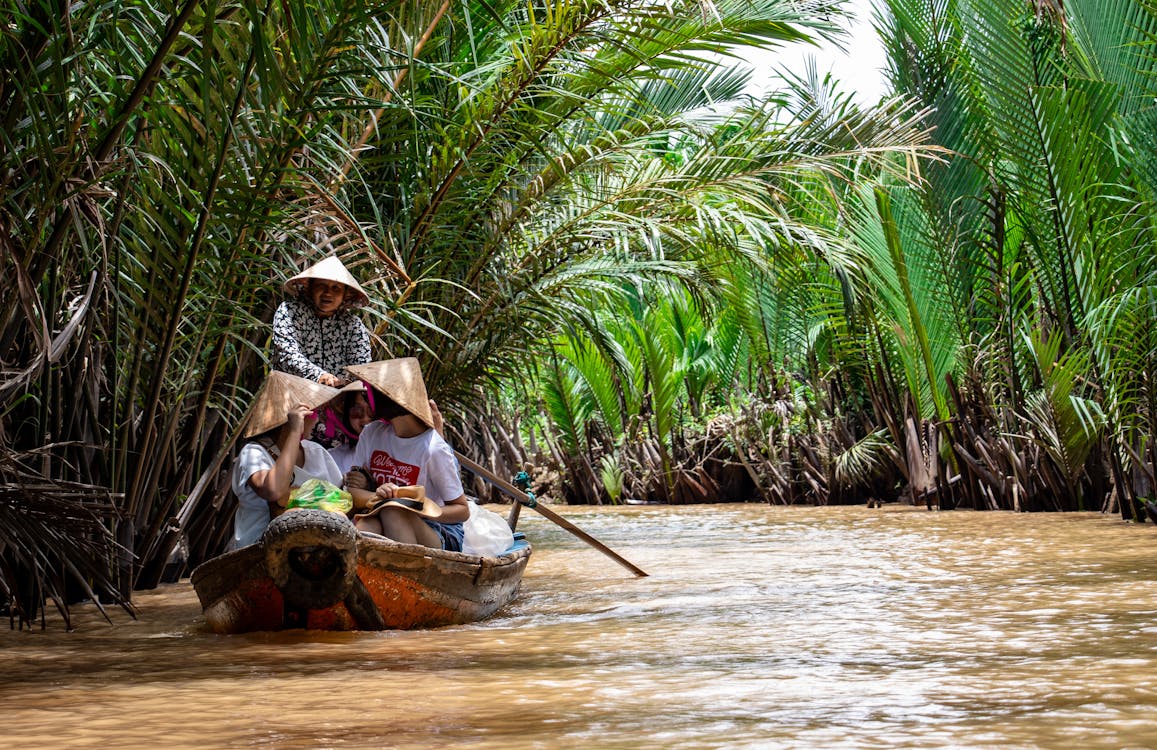 You want to go to Vietnam? It’s an amazing place and you will love it. But first, you need to be prepared for this beautiful country known by the US troops who fought in the Vietnam War as Nam. But locals would prefer it to be known as the “Land of the Blue Dragon”.
You want to go to Vietnam? It’s an amazing place and you will love it. But first, you need to be prepared for this beautiful country known by the US troops who fought in the Vietnam War as Nam. But locals would prefer it to be known as the “Land of the Blue Dragon”.
Must Wear
What to wear is a must to know. Vietnam’s climate is as diverse as its landscape, with three distinct regions offering unique weather patterns. The north enjoys a cooler winter from November to April, perfect for exploring Hanoi’s historic sites.
Meanwhile, the south boasts a tropical climate year-round but shines brightest between November and February when rain is scarce. Central Vietnam in cities like Hue and Da Nang enjoys a pleasant spring from February to May. Best time to visit? Between December and February to catch the sweet spot across all regions.
Packing That Involves Some Very Smart Choices
Packing for Vietnam involves some smart choices. If you have traveled in this part of the world, you will know that lightweight, breathable clothing is a must for the warm climate, but don’t forget a light jacket for cooler northern evenings. Travel documents like your passport, visa, and a few copies are essential. A small first-aid kit and any personal medication are crucial, given the varying availability of pharmacies. Leave space for essentials like sunscreen, insect repellent, and a universal plug adapter!
Currency in Vietnam is the Vietnamese Dong (VND) and while it might seem baffling at first due to a high number of zeros, you’ll get the hang of it. Sometimes you can get confused and give someone 500,000 Dong bill instead of a 50,000 one and I’m not proud to admit that it happens quite a lot.
For those that like to take cash out of ATMs, these are widespread in cities, but it’s good to have cash on hand in smaller denominations for street vendors and local markets. Digital payments are becoming more popular in urban areas, but cash is still king in most places.
This post contains affiliate links that I earn a small commission from at no cost to you.
While English isn’t spoken everywhere, especially in rural areas, you’ll find it in most tourist hotspots and hotels. Learn a few basic Vietnamese phrases, like ‘xin chào’ for hello and ‘cảm ơn’ for thank you. Not only does it win smiles, but it also shows a bit of respect for the local culture. Embrace the challenge, and remember, a friendly gesture goes a long way when words might fail. If you want to know some more phrases, I’ve left a few at the bottom of the article.
Staying Safe And be Aware of Common Scams
While Vietnam is generally safe, it’s wise to keep an eye out for common scams, especially in bustling tourist areas. Be cautious of cyclo drivers who don’t agree on a fixed price beforehand, as well as overly friendly locals offering unsolicited guidance, which might lead to unexpected charges. It’s always a good idea to check your change when paying in cash to avoid confusion with the currency.
Vietnam’s traffic can be quite the spectacle, especially in cities like Hanoi and Ho Chi Minh City, where chaotic intersections are the norm. Don’t hesitate to use ride-sharing apps like Grab for convenience and safety. If you’re exploring by foot, crossing the street might seem like an adventure; just walk confidently and maintain a steady pace.

Healthcare is a topic you don’t want to overlook. Although Vietnam has decent medical facilities in major cities, it’s still best to travel with health insurance that covers international travel. Carry any specific medications you need, as the availability might differ and the language barrier can sometimes make it tricky to find the exact products.
Safety is a key concern for any traveler, but Vietnam ranks highly for both solo and family travelers. For solo female travelers, it’s generally safe, though staying in well-populated areas is wise. Families will find Vietnam’s vibrant street life and cultural excursions both educational and entertaining, offering plenty for all age groups to enjoy.
Exploring Vietnam: Must-Visit Destinations
Vietnam is bursting with destinations that will impress any traveler. Hanoi, with its rich history and bustling streets, is a fascinating blend of ancient culture and modern hustle. It’s easy to lose yourself in the Old Quarter’s maze of shops and cafes.

For nature lovers, a cruise on Halong Bay is a bucket-list experience. The unique limestone karsts jutting out of emerald waters are simply mesmerizing. Jumping down to central Vietnam, Hoi An charms with its lantern-lit nights and unique mix of Chinese, Japanese, and European architecture.
Wartime Past
Ho Chi Minh City, or Saigon as the locals call it, offers a taste of urban life. It’s the place to enjoy Vietnam’s best street food and nightlife. Nearby, the Cu Chi tunnels offer an immersive look into the country’s wartime past.
Couples will find plenty of romantic spots, like the enchanting hill station of Dalat, often called the “City of Eternal Spring.” Its lakes, misty valleys, and flower gardens make it an ideal retreat.
There’s a treasure trove of activities for families in places like Phong Nha-Ke Bang National Park, home to some of the world’s largest caves. Kids will love adventurous boat rides and exploring the mysterious underground world.
Whether you’re exploring solo, as a couple, or with family, Vietnam’s diversity caters to everyone. Hop on a guided tour for deep insights or chart your own course for freedom and flexibility. Either way, you’re in for an adventure you won’t forget.
Managing Your Budget: Cost and Expenses
 Traveling through Vietnam won’t break the bank, but having a good grip on expenses helps stretch your budget. Accommodation varies greatly, from budget hostels to luxurious five-star hotels. Backpackers will find clean hostels and homestays that offer a taste of local life without the hefty price tag, while splurge options await in major cities.
Traveling through Vietnam won’t break the bank, but having a good grip on expenses helps stretch your budget. Accommodation varies greatly, from budget hostels to luxurious five-star hotels. Backpackers will find clean hostels and homestays that offer a taste of local life without the hefty price tag, while splurge options await in major cities.
Eating out is where Vietnam shines. It’s tough to resist the street food scene, where delicious bowls of phở, an aromatic noodle soup with chicken or beef and herbs, or a bánh mì (baguette) filled with various cuts of pork, pâté and vegetables will still leave you with a pocketful of change. Mid-range restaurants won’t hurt your wallet much either, and the flavors are just as compelling.
Flights Between Cities Are Reasonably Priced
Transportation can be very budget-friendly if you stick to trains and buses. For those seeking comfort and speed, domestic flights between cities are reasonably priced and save valuable time. Renting bikes or using local transport apps offers a fun and affordable way to get around.
With a bit of savvy, you can enjoy all Vietnam has to offer on a range of budgets. Travelers focusing on value will appreciate the country’s affordable culture tours and picturesque excursions. It’s not just about cutting corners; finding the balance between costs and experiences is where the magic happens.
Useful Words And Phrases…
Being polite – Xin chào for hello; Cảm ơn for thank you; Xin lỗi – Excuse me/Sorry; Xin vui lòng – Please
Asking for Help – Đây là đâu? – Where is this?; Giúp tôi với – Help me, please; Tôi không hiểu – I don’t understand; Nhà vệ sinh ở đâu? – Where is the restroom? – Yes:Vâng –
No, thank you: Không cam on ban
Transport – Taxi đến…được không? – Can I have a taxi to…?; Tôi muốn thuê xe máy – I want to rent a motorbike
Shopping and Eating Out – Có được mặc không? – Can we bargain?; Bao nhiêu tiền? – How much is this?; Tôi muốn gọi món – I’d like to order
Emergencies- Tôi bị lạc – I’m lost; Gọi bác sĩ! – Call a doctor!; Tôi bị ốm – I’m sick; Số điện thoại khẩn cấp là gì? – What is the emergency number?; Tối có thể gặp cảnh sát không? – Can I see the police?

